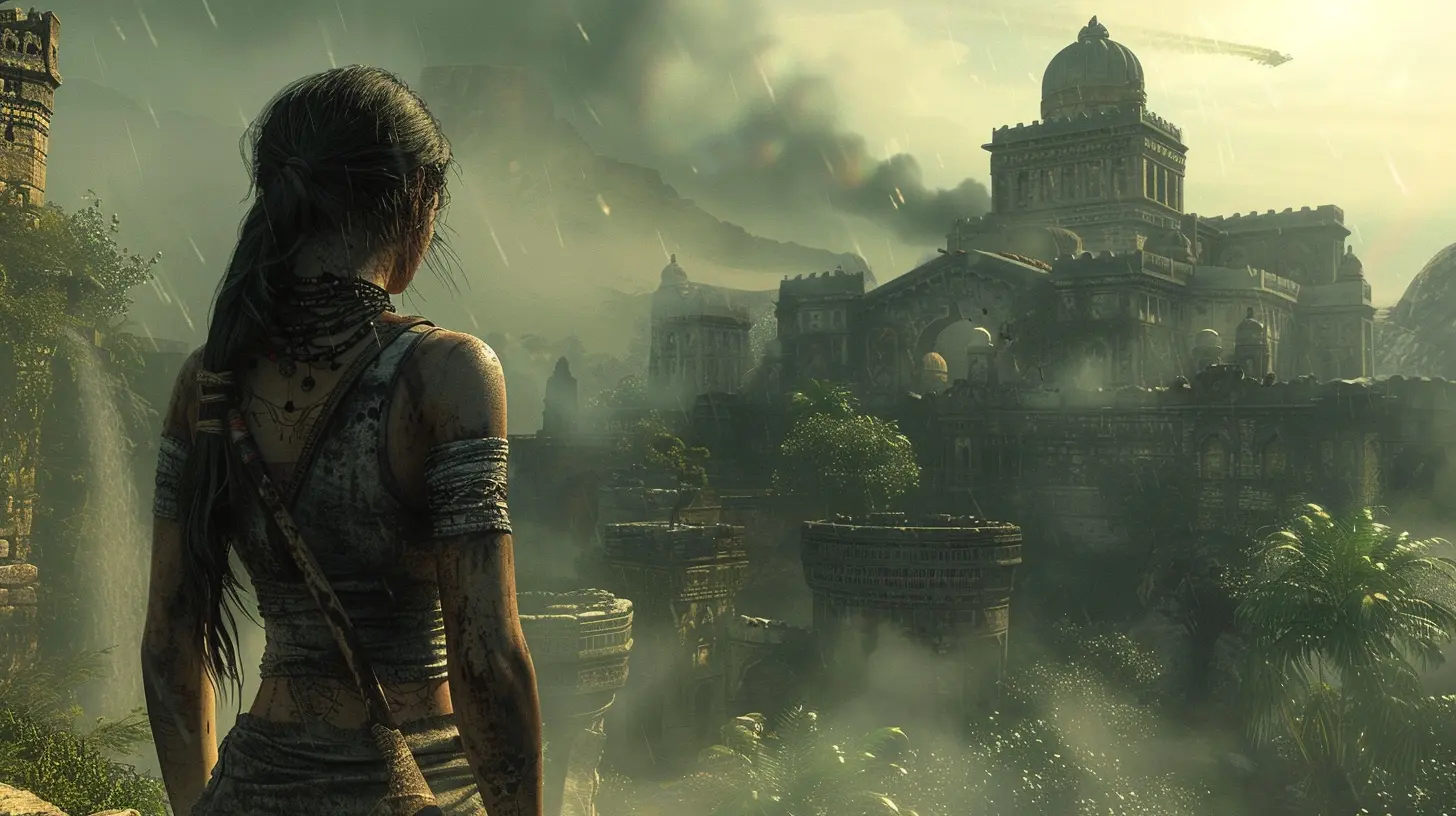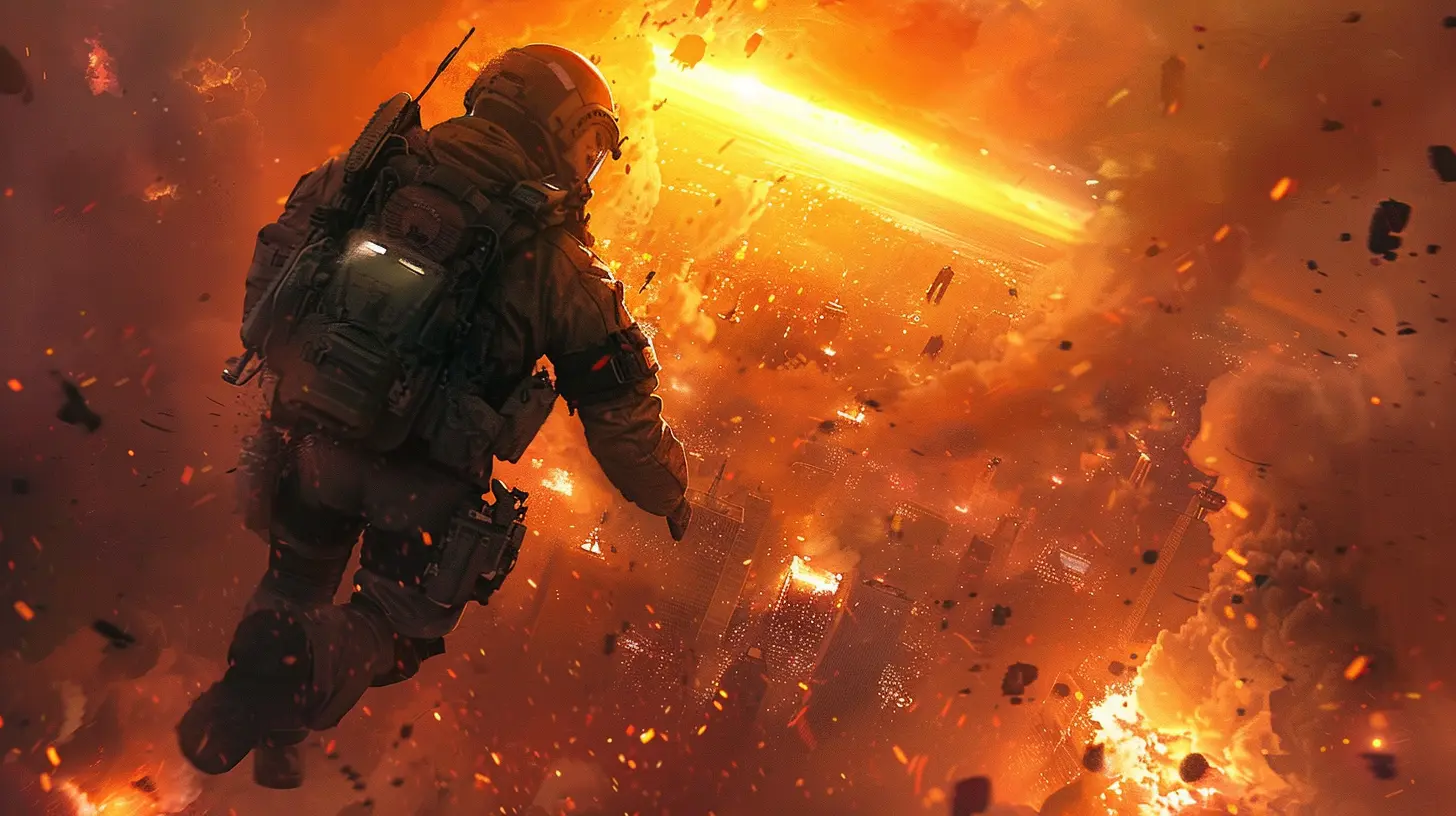Analyzing the Psychological Thrill of Action Games
19 May 2025
Action games have been a staple in the gaming world for decades, captivating players with their high-octane gameplay, adrenaline-pumping scenarios, and immersive experiences. But have you ever paused to think about why these games are so thrilling? What is it about dodging bullets, surviving explosions, or taking down hordes of enemies that keeps us glued to our screens for hours on end? Let’s dive deep into the psychological factors behind action games and what makes them so irresistibly exciting.
The Science of Thrill: Why Action Games Hook Us
Ever felt a surge of excitement coursing through your veins during an intense game moment? That adrenaline rush isn’t a coincidence; it’s your brain reacting to the stimuli thrown at you by the game.1. The Dopamine Effect
Action games trigger the release of dopamine, a feel-good neurotransmitter in your brain. It's the same chemical that gives you a sense of reward and satisfaction when you achieve something important. Every time you beat a tough level, unlock a new weapon, or pull off an insane combo, your brain gives you a little "high-five" in the form of dopamine.This constant stream of rewards is what makes action games so addictive. It’s like the games are dangling a carrot in front of us—except this carrot feels amazing every single time we catch it.
2. Fight or Flight Response
Action games often put players in high-stakes, do-or-die scenarios. Whether you're escaping a collapsing building or engaging in an intense firefight, your body can’t always tell the difference between the game and reality. Your mind instinctively activates your fight-or-flight response, increasing your heart rate and heightening your senses. This creates an almost primal level of engagement. Who doesn’t love feeling like a superhero dodging bullets, even if it’s virtual?3. The Illusion of Control
Let’s be real—life can feel chaotic and out of control at times. But when you’re playing an action game? You’re calling the shots. Whether you're saving the world in "Call of Duty" or conquering galaxies in "Mass Effect," you’re in charge. This sense of control is psychologically empowering. It’s a break from reality where you get to be the hero without worrying about the real-world consequences.
Action Games and Emotional Rollercoasters
Action games aren’t just mindless entertainment; they’re a rollercoaster of emotions. Think about it—one moment you're frustrated because you keep dying at the same spot, and the next, you're fist-pumping after finally beating the boss. This ebb and flow of emotions is part of what keeps us coming back for more.1. Frustration and Triumph
Ever hurled your controller across the room in sheer frustration, only to pick it up five minutes later? That’s because action games are designed to challenge you. Overcoming obstacles, no matter how tough, gives a massive sense of accomplishment. It’s like climbing a mountain—frustrating and exhausting during the climb, but absolutely worth it when you reach the top.2. Immersion and Escapism
Action games often place players in immersive worlds filled with gripping narratives and larger-than-life characters. For a few hours, you’re not just a gamer; you’re a soldier, a spy, or even a treasure hunter. This kind of escapism is a healthy way to temporarily forget about daily stresses and immerse yourself in something exciting.
Multiplayer Action: The Thrill of Competition
Ah, multiplayer action games—where the stakes are higher, and the competition is fiercer. Games like "Apex Legends," "Fortnite," and "Overwatch" aren’t just about the gameplay; they’re about outsmarting and outplaying real-life opponents. Why is competing against other players so thrilling?1. Social Interaction
Let’s face it: humans are social creatures. Even in the chaos of explosions and gunfire, there’s a social aspect to multiplayer games that makes them deeply engaging. Whether you’re teaming up with friends or trash-talking strangers, that social connection adds another layer of excitement.2. High Stakes Equal High Rewards
When you’re playing against real people, the stakes feel significantly higher. A win isn’t just about beating the game; it’s about proving your skills. It’s that indescribable feeling of pride when you clutch the final round in a match or carry your team to victory. The thrill of competition is like playing poker—every move counts, and every win feels earned.
Why Do We Keep Coming Back?
With so many types of games out there, why do action games have such staying power? The answer lies in how they uniquely stimulate our psychology.1. Progression Systems
Action games are masters at keeping us hooked with progression systems. Whether it’s leveling up, unlocking new abilities, or earning rare loot, these games always give you something to work toward. It’s like chasing a never-ending series of mini-goals that keep you motivated to play “just one more round.”2. Challenge and Growth
Deep down, we all like to feel like we’re getting better at something. Whether it's mastering a particular weapon or learning new strategies, action games provide continuous opportunities for improvement. They tap into our innate desire for growth and make the effort rewarding.3. Reliving the Thrill
Let’s be honest—who wouldn’t want to relive the rush of taking down an enemy squad or escaping a hair-raising ambush? Action games allow us to recreate those exhilarating moments whenever we feel like it. It’s like riding the same rollercoaster over and over, knowing it’s going to be just as exciting as the first time.The Psychological Benefits of Action Games
Believe it or not, action games aren’t just fun—they can also be good for you. Skeptical? Here’s how:1. Improved Reaction Times
Studies have shown that playing action games can improve your reaction times. Dodging enemy attacks or making split-second decisions sharpens your reflexes and coordination. Essentially, your brain gets a workout while you’re busy having fun.2. Enhanced Problem-Solving Skills
Don’t underestimate the strategic element of action games. Many require quick thinking, resource management, and adaptability. Over time, these skills can transfer to real-world problem-solving situations. Who knew “Halo” could make you better at tackling work projects?3. Stress Relief
Sure, action games can get intense, but they’re also a fantastic way to blow off steam. After a long day, there’s something cathartic about taking out hordes of enemies or completing a challenging mission. It’s a healthy way to channel frustration and recharge.Striking the Right Balance
Of course, like anything else, moderation is key. While action games offer countless benefits and thrills, spending too much time in front of the screen can have its downsides. Maintaining a balance ensures you can enjoy the excitement without letting it negatively affect your health or relationships.Conclusion: The Perfect Blend of Thrill and Entertainment
Action games tap into a unique combination of psychology and adrenaline that makes them endlessly enjoyable. They challenge, reward, and immerse us while offering a break from reality. Whether you’re looking for a quick thrill, a chance to compete, or just some stress relief, action games never disappoint.So, the next time you’re deep into a gaming session, remember: It’s not just a game; it’s a psychological adventure that’s keeping your brain sharp, your emotions engaged, and your sense of satisfaction sky-high.
all images in this post were generated using AI tools
Category:
Action GamesAuthor:

Tina Fisher
Discussion
rate this article
3 comments
Oscar Evans
Embrace the adrenaline—gaming fuels our courage!
June 4, 2025 at 3:22 AM

Tina Fisher
Absolutely! Action games not only thrill but also empower players, enhancing their courage and decision-making skills in high-stress situations.
Juno Fletcher
Great read! It's fascinating how action games tap into our instincts and emotions—truly a thrilling psychological experience!
May 25, 2025 at 2:46 AM

Tina Fisher
Thank you! I'm glad you enjoyed it. Action games indeed have a unique way of engaging our instincts and emotions to create that thrilling experience.
Imani Horne
This article sparks fascinating insights! I'm intrigued by how action games tap into our psychology. What specific elements do you think create the most intense thrills?
May 24, 2025 at 5:00 AM

Tina Fisher
Thank you! The most intense thrills often come from elements like fast-paced gameplay, high-stakes scenarios, and immersive storytelling, which engage our fight-or-flight response and create a deep emotional connection to the game.



